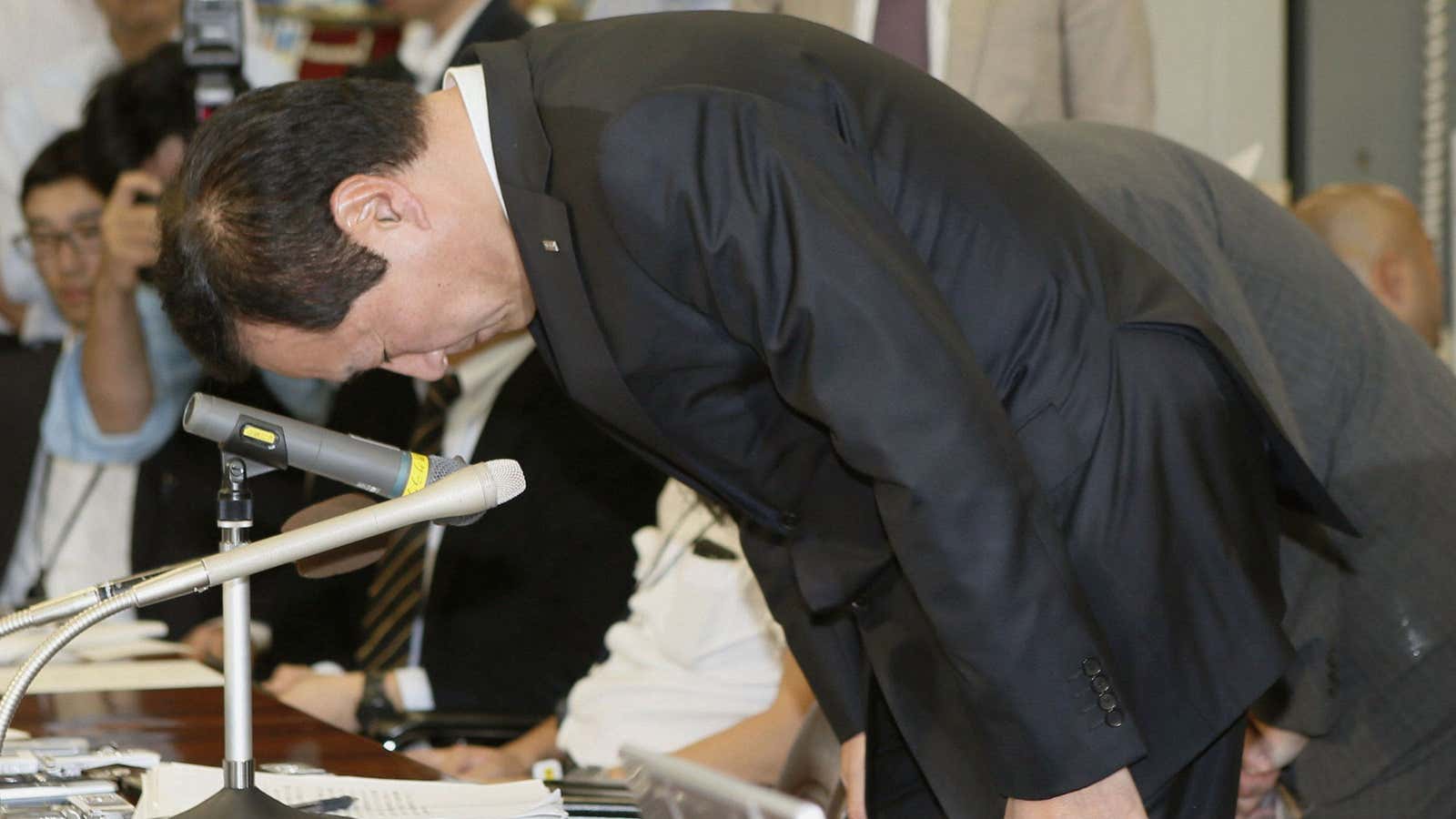Jamie Dimon may be under fire for presiding over a sprawling banking enterprise forced to set aside $23 billion to cover a panoply of lawsuits, but at least no one has accused JP Morgan of lending to organized crime. Not so Mizuho Financial Group, which is ensnared in a scandal over loans to the country’s yakuza criminal syndicates.
Like Dimon, Mizuho CEO Yasuhiro Sato will probably keep his job. Reuters, citing sources familiar with the matter, reported on Friday that Sato will instead have his salary suspended for six months, and more than 30 other senior executives at Japan’s second-largest bank (by assets) will have their pay cut. Japan’s Financial Services Agency ordered the bank to improve compliance in September after discovering that Mizuho and its partially-owned subsidiary, Orient Corp., made more than 230 mostly automobile loans worth 200 million yen ($2 million) to “antisocial forces,” as yakuza groups are often described in Japan.
Japanese banks and foreign banks doing business in Japan now must include clauses in loan contracts requiring borrowers to pledge they are not members of “antisocial forces,” and if they lie the loans can be invalidated and the signatories prosecuted for fraud. ”Consequently,” writes Japan Times veteran yakuza reporter Jake Adelstein, “readily visible yakuza—those with tattoos and/or missing fingers—are now finding themselves unable to maintain a savings account or even rent an apartment.”
Sato has admitted that despite earlier denials, he “was in a position to be able to know” about the loans when he attended a group board meeting in July 2011. Mizuho “had been warned about the same thing in 2010 but didn’t do anything,” according to Adelstein, which doesn’t do much to assuage widespread suspicions that Japanese businesses often engage in dealings with criminal enterprises. On the other hand, Mizuho—unlike JPMorgan—doesn’t keep a notorious murder weapon on the premises.
